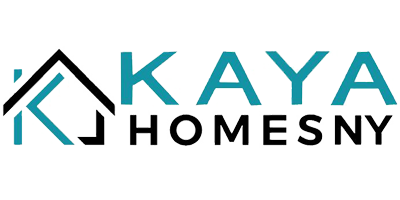Think of walking into your backyard on a sweltering summer day and hearing the slight gurgle of water in your very own oasis. That’s the dream that makes many homeowners consider adding a pool to their property. If you’re considering installing a pool or plan to buy or sell a house on Long Island, though, you probably are wondering if such a decision would be a smart financial investment. A decision to install a pool is not just about the fun; it’s actually an investment into something that will affect your property value in more ways than you can imagine. Now, let’s dive into the benefits of pools and their impact on property values, exploring everything you need to know to make an informed decision.
Benefits of Having a Pool
A pool provides the perfect combination of relaxation, fitness, and added home value, thereby making it a worthy investment for any homeowner planning to buy or sell a house on Long Island. Let’s understand its benefits in detail!
Recreational Enjoyment
A pool is a great recreational space for families and friends, where they can relax, swim, and conduct gatherings. The pool becomes an excellent venue to host parties, barbecues, and family gatherings-developing the overall lifestyle.
Stress Relief Made Easy
The calming effect of water, often referred to as “Blue Mind,” is scientifically proven to reduce stress and anxiety. Being closer to or within water allows you to relax and feel happy as it helps you to release your burden. Therefore, this nature of water can explain why pools are a peaceful feature in your backyard.
Enhances Property Appeal
A pool contributes to uplift the appeal of your house, yet it greatly increases its value by up to 7% in some locations. For cities characterized by warm climates, like the Dumbo in Brooklyn county, it might just be the determining factor for buyers. It will enhance both the aesthetic and market value of your property.
Encourages Outdoor Time
Having been in a pool gives you the urge to spend more time outdoors because of fresh air and sunshine. The vitamin D obtained from sun exposure improves good moods, concentration, and even creativity. A pool maximizes outdoor living areas to create a healthy and active lifestyle.
Types Of Pool That Can Increase The Property Appeal
Pools are an excellent enhancement to one’s property, but choosing the right kind will accompany both one’s lifestyle and appeal of the home. Following are several types of pools that contribute a great deal to property appeal.
In-Ground Pools
In-ground pools remain the top choice for homeowners seeking improved value appreciation. They can be custom-built to a desired shape or size using materials like concrete, fiberglass, or vinyl. The permanence and aesthetic appeal make in-ground pools very desirable among buyers, especially in warmer climates.
Infinity Pools
The infinity pools, through their visual effects, make the water appear to extend to the horizon. Set amidst great scenic views makes them more attractive and add class to any property, making them an instant hit with any high-end buyer.
Plunge Pools
Plunge pools are much smaller than the usual swimming pools and intended more for relaxation than doing laps in, they require less space and maintenance. They’re ideal for properties where the backyard or outdoor space is not big, yet they’ll add style and be very luxurious.
Lap Pools
Designed for fitness enthusiasts, lap pools are long and narrow, allowing the user to swim continuously. They can be an excellent addition for buyers interested in exercise and health, appealing to the niche market seeking fitness-based amenities.
Above-Ground Pools
Above-the-ground pools are cheaper compared to underground types, but they can also add appeal to a property if they are well-maintained and aesthetically pleasing. These types of swimming pools are relatively easier to install, and they can be removed at any time if need be; thus, they are flexible for owners.
Saltwater Pools
Saltwater pools maintain their water cleanliness via a salt chlorine generator, which is far more pleasant to many people than traditional chlorine pools. The lower maintenance and reduced use of chemicals involved in their care can certainly be seen as high selling points to environmentally conscious buyers.
Costs Associated with Installing a Pool
The creation costs and maintenance fees come into great consideration when one intends to install a Long Island pool to make a proper immediate decision.The prices can range from a lowly $30,000 to a high of $60,000, depending on the size, the material used, and whether it is a vinyl, fiberglass, or concrete pool.
Additional features that may be fitted into your in-ground pools include lighting or heating systems. Above-ground swimming pools are inexpensive to install. The most economical estimate one would incur in installing above-ground pools is between $1,500 and $15,000. While most affordable, above-ground pools will probably not add to your home’s value as much as an in-ground pool would.
Obtaining permits and inspections, if this is a requirement in many areas, most local regulations make this compulsory for pool installations. Permit fees will generally range between $500 and $2,000, depending on your location and the specifics of your project. Landscaping and fencing are other important considerations. You can think beautifully regarding a pool area with landscaping, costing anything from $2,000 to $10,000. Safety fencing-often legally required-will cost another $1,500 to $5,000 in total, but it will ensure you are meeting the requirements with peace of mind.
Maintenance is a recurring cost for pool ownership and must be considered in your budget. Regular maintenance, including cleaning, balancing, and upkeep of equipment, runs between $1,200 and $2,400 annually. Pool cleaning alone can cost around $100 to $200 a month, depending on the service frequency in a month. The pools also take a toll on utility bills, with just the consumption of water and electricity for pumps and heaters increasing anywhere around $50 to $150 a month. Repairs to pumps, filters, and structural components are inevitable over time, so it is good practice to set aside roughly 10% of the initial installation cost annually in remediating unexpected expenses.
Potential Downsides of Pool Ownership
While pools can add value and enjoyment to your property, they come with several considerations that potential owners should carefully evaluate.
Maintenance Costs
The ownership of a swimming pool does involve significant, continuing maintenance costs like cleaning, chemical treatment, and repairs. These expenses will add up fast and may discourage several buyers who either do not want to take on the responsibility or the extra costs associated with upkeep.
Safety Concerns
Besides the fun, pools pose safety risks, especially if there are babies or pets in the family. The presence of a probable accident raises the costs of liability insurance. To eliminate these risks to the minimum, the homeowner may have to invest in safety features like fencing, covers, and alarms, further adding to the overall expense of pool ownership.
Seasonal Use Limitations
The pool is only useful for part of the year in most areas due to seasonal weather conditions. Since pools are not practical for colder regions, and therefore useful, a majority of the year, they even manage to have a negative impact on property value.
Impact on Property Value
Though a pool can enhance value in some markets, in other areas, it becomes a turn-off. In areas where the climate or culture does not support water features, a pool adds little value and might even decrease buyer demand and make the sale of the house more difficult.
Alternatives to a Pool for Increasing Property Value
Before committing to a pool, consider the following home improvements that might offer better returns on investment.
Outdoor Living Spaces
Outdoor living spaces such as patios, decks, or covered porches can definitely increase the added value to property. These spaces will become functional spaces for enjoyment and entertainment, which appeal more to buyers who seek outdoor time with much less maintenance compared to a pool. This will add even more attractiveness, especially with high-quality materials and landscaping.
Landscaping Improvements
Professional landscaping goes a long way in improving the curb appeal of a property. Other features that add ambiance to a property include well-maintained gardens, trees, and shrubs. Many hardscaping features, like walkways and retaining walls, add an aesthetic touch to the outdoor space.
Energy-Efficient Upgrades
Energy-efficient features installed, such as solar panels, energy-efficient windows, or smart home technology, will similarly attract eco-conscious buyers and eventually drive up your property’s value. Such improvements also cut utility bills and can aid in maintaining a very green lifestyle; thus, making the property more attractive to today’s buyer is important.
Home Additions or Renovations
Increasing square footage through adding on or renovating to the home increases home value. Other options include adding living areas, bedrooms, or bathrooms, or finishing off basements and attics. These options do more than increase space; rather, they also add functionality, which will make the house more attractive to buyers.
Final Considerations
While a pool can enhance the value of a home, it certainly isn’t an investment by any means. How much it goes into depends on a great deal of variables, including location, climate, type of pool, and maintenance. In warmer climates with longer swimming seasons, pools are seen as a gift for living and may indeed attract more buyers who would, subsequently, have to pay a premium. In colder weather locations, though, the minimal period of use may offset any perceived value. Moreover, the cost of maintaining a pool, be it chemicals, cleaning, or even repairs if something goes wrong, can be considerable. In the long run, therefore, it should not be an economic investment decision, but rather an enjoyment and lifestyle choice.
FAQs
- Does adding a pool increase the resale value of my home?
Adding a pool can add to the resale value of your home, but the amount is dependent upon location and market conditions. In warmer climates, pools can be looked at as a plus and may increase property value from 5% to 15%, while in cooler areas, a pool may not add significant value and may even deter some buyers because of the maintenance concerns.
- What type of pool offers the best return on investment?
Generally speaking, in-ground pools provide you with more significant returns compared to above-ground pools. In the case of in-ground pools, fiberglass pools are getting popular because they are durable and cheap to maintain. Even so, the pool type that yields the most return also depends on the tendency of local buyers and the general trend of the real estate market in your area.
- Are there any costs associated with maintaining a pool that could offset its value?
Yes, maintaining a pool carries some costs such as cleaning, chemicals, repairs, and increased utility bills. These expenses will reduce some of the additional value provided by the pool itself. It may be a few of those things potential buyers are factoring into the profitability of your property in negotiations.
- How does the presence of a pool affect buyer interest?
A pool can greatly enhance buyer interest, especially for families who seek recreational options or enjoy outdoor living. It can also shrink your pool of buyers; some buyers view pools as a liability, citing safety concerns or maintenance. Knowing your local market will help you understand how much interest a pool may create in your property.







